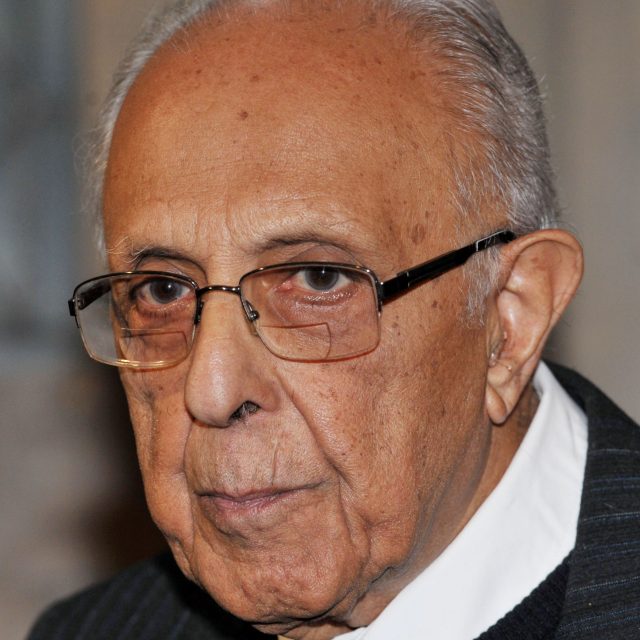South African anti-apartheid leader Ahmed Kathrada dies aged 87
He spent 26 years in prison, many of them alongside Nelson Mandela.

Anti-apartheid activist Ahmed Kathrada, who spent 26 years in jail for acts of sabotage against South Africa’s previous white minority government, has died in Johannesburg at the age of 87.
Mr Kathrada’s foundation announced that he died after being admitted to hospital with blood clotting in his brain earlier in March.
He was born on August 21 1929 to Indian immigrant parents in a small town in north-western South Africa.
After being involved in activities against apartheid, Mr Kathrada was arrested on the outskirts of Johannesburg in July 1963, when police swooped on Liliesleaf Farm in the suburb or Rivonia, where he and other “banned” people had been meeting.

He was sentenced to life imprisonment in 1964 and served many years alongside Nelson Mandela.
Neeshan Balton, chief executive of the Ahmed Kathrada Foundation, said in a statement: “Kathy was an inspiration to millions in different parts of the world.
“This is a great loss to the ANC (African National Congress, South Africa’s ruling party), the broader liberation movement and South Africa as a whole.”
Tributes poured in for Mr Kathrada, who was released from prison in October 1989 at the age of 60.
“Comrade Kathy was a gentle, humane and humble soul. He was a determined revolutionary who gave his entire life to the liberation struggle in our country,” said tourism minister Derek Hanekom.
After his release from prison, Mr Kathrada was a member of parliament and he married anti-apartheid activist Barbara Hogan, who herself had been sentenced to 10 years in jail for high treason against the apartheid government in 1982.
Recently Mr Kathrada had been a vocal critic of scandal-plagued President Jacob Zuma and the ANC government.
In April last year, he called on Mr Zuma to resign after South Africa’s highest court found that the president had violated his oath of office by refusing to pay back public money spent on upgrading his rural home.
“I know that if I were in the president’s shoes, I would step down with immediate effect,” he said. “I believe that is what would help the country to find its way out of a path that it never imagined it would be on, but one that it must move out of soon.”





